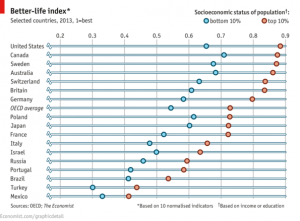Donald may go away at some point but he has done conservatives a big favor that will last a long, long time: McConnell and Donald now have confirmed 84 judges over the past two years, including two Supreme Court nominees. [Politico]
– – – –
Mariner has been looking at what and who are on the ballot in November. He noticed a larger than usual number of referendums AKA ballot initiatives; 38 states will sponsor 154 ballot initiatives. He took the initiative (sorry) to poke about the subject of voters legislating government policy directly. An article at www.Citylab.com talked about the common response from legislators:
“It took about 45,000 Washington, D.C., voters to pass a ballot initiative this June raising the minimum wage for tipped workers. It took only eight city council members out of 13 (and a ton of public pressure) to begin the process of repealing it only a few months later. This wasn’t a bug in democracy. In D.C., and many cities and states across the U.S., it’s part of democracy.”
Here’s a sampling of what legislation is on the ballot instead of by a vote in the legislature:
– Voters in Arkansas and North Carolina will decide whether to enact voter ID requirements.
– Florida, Maryland, Michigan and Nevada have measures that aim to make it easier for people to vote and register.
– Florida’s Amendment 4 would restore felons’ voting rights.
– Montana voters could make it a crime to collect and turn in ballots cast by others.
– In a few states, judges have struck down unconstitutional voter legislation. These states are using a referendum this time to incorporate the voting language into the state constitution to prevent further rejection by the court.
– Voters in Idaho, Montana, Nebraska and Utah will decide the fate of Medicaid expansion, a key issue in Obamacare.
– Voters in three states (Alabama, Oregon and West Virginia) could restrict or preemptively criminalize abortion.
– Massachusetts may join California to become only the second state in the country to limit the number of patients that hospital nurses can help at one time.
– Also in Massachusetts, voters could repeal a 2016 law that protects transgender people from discrimination in public spaces, including bathrooms.
– Oregon has the oldest sanctuary state law in the country. Voters will decide whether to keep the law or repeal it.
– California, like Florida did recently, wants to forego Daylight Savings Time. It is a ballot initiative this year. Florida actually passed the anti-DST initiative but apparently the US Congress must give it a blessing.
In Colorado and Oklahoma, there are tax initiatives to raise taxes to improve support of public education. Oklahoma is last in the nation in dollar support per student.[1]
– – – –
Two sources noted that legislators have become less willing to accept voter legislation even if it passed easily. As noted above, Washington DC legislators wasted no time in repealing the rise in minimum wage for tipped workers; the public pressure was from businesses that hire tipped workers.
Voters can cause serious issues. Older folks remember Howard Jarvis leading a property tax revolt in California in 1978 called Proposition 13. The voters were disgruntled by the tax rates as homes grew in value. The proposition changed the state constitution to limit property tax increases to 1% of value and requires future tax legislation of any kind to pass with a minimum of two-thirds of the legislature. Because the constitution was changed, it requires that same two-thirds to change it. The law was challenged in the Supreme Court in 1992 and was upheld.
This voter revolt changed California government forever. Before 1978, the California budget was adequate for the large size and industry of the State. In 1980, the first year Proposition 13 was invoked, State revenue dropped $40 billion.
On the other hand, legislators today have a bit more starch about voter interference. In the case of Washington DC, business lobbyists forced the hand of legislators to ignore a public wish to improve the quality of at least one sector of the working class.
Government is a difficult business – voters want one thing, business wants another and both the legislators and the voters can make prejudiced if not harmful mistakes.
If your ballot has a ballot initiative, read and think about its effect before voting day.
Ancient Mariner
[1] If the reader wants more information, see:
http://www.governing.com/topics/politics/gov-2018-ballot-measures-statewide.html

